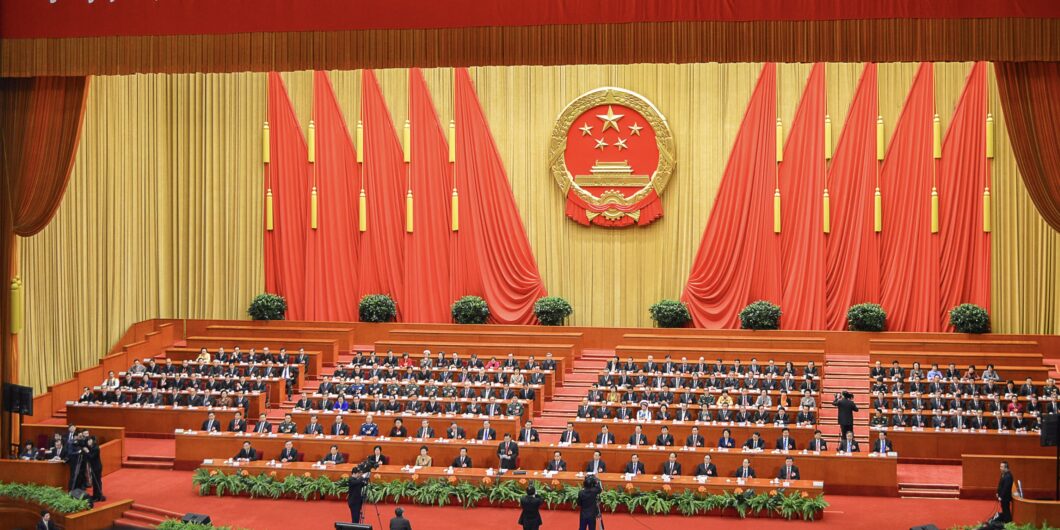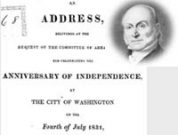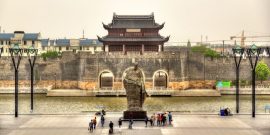Public Choice with Chinese Characteristics
Ryan Yonk and Ethan Yang’s new book The China Dilemma: Rethinking US-China Relations Through Public Choice Theory may leave the reader with more questions than answers—which is not necessarily a criticism. Some of the questions were constructive, such as: What are the limits of American interests abroad, particularly in the Pacific? It certainly prompted me to ask if foreign policy research will ever make significant scholarly advances in a realm dominated by experts with very diametrically opposed methods and assumptions. But the single biggest question that I found myself asking is: What exactly is “public choice?” More precisely, is a public choice analysis of foreign policy and international relations even possible? And if we can imagine a “public choice” critique of foreign policy, what predictive power and leverage over policymaking could this give us?
The book is timely because tensions between the US and China are increasing. Bilateral trade is declining, regional friction between China and its neighbors is rising, and internationalists in Washington are ringing alarms about threats to American interests in the Pacific. We have heard pleas to defend Taiwan, calls for a more robust Japanese military, and outcries over a flood of Chinese imports destroying manufacturing jobs in the US. This book attempts to take a more nuanced and less jingoistic view of recent Chinese actions abroad, and is a welcome addition to the discussion over how the US should view China’s growing international presence.
And these authors adopt a very different tone than the partisan discourse regarding China today. They reject the notion that there is a monolithic China, even though the country is certainly not a democracy, nor does it value individual freedom. While China’s political leadership tends to move in lockstep, the authors believe that only some of the rhetoric coming from Beijing is relevant for the US, which may not include the more aggressive positions that hawks in the US are citing.
In the first several chapters the authors go out of their way to explain various ways that contemporary IR scholars have analyzed why nations do what they do. This gives the reader a good sense of the wide breadth of perspectives that experts in the field possess and should help calm readers who are concerned that conflict between the two nations is inevitable or even necessary from an American security perspective.
They discuss and compare conventional IR approaches such as realism, constructivism, and cultural issues as ways to think about Chinese actions on the world stage. However, after pointing out many of the significant shortcomings in each approach, they contrast each with their definition of public choice. How do they define public choice? It mostly boils down to the assumption that individuals in governing positions must be understood as being rational and self-interested. Discussions about what is in the “national interest,” for example, are too divorced from reality. Instead, they see much of China’s recent international and domestic activity as helping the Chinese leadership to remain in power—a laudable way to think about why any politicians do what they do, even in a non-representative system of governance.
They spend the next three chapters discussing Chinese history, foreign policy activities, economic policies, and social forces. These contextual discussions are interesting, and I assume the authors have included this material to provide the reader with a broader overview of “why China is acting in seemingly evil, illogical ways” for foreign readers and thinkers. And they certainly have a plausible argument as to why China might be acting as it is. China’s leaders, they argue, are responding to historical influences, the risks that globalization poses to their rule, and the unstable social dynamics of China’s large and diverse population. For example, they strive to explain why turning away from growth models is “rational” for the leadership as a way of centralizing power. But these chapters don’t make clear exactly why China’s current policies are the best or most effective ways for self-interested politicians to act. Instead, the authors seem to be using backward induction to generate explanations rather than predictions.
Public choice theory is very much based on a Hobbesian view of politics. Hobbes’ challenge to any liberal theorist (and Hobbes himself seems to fall into that camp) is to practically balance individual interests with a stable social order. It’s one that institutionalists have tried to reconcile, but have managed to do more effectively in the realm of economics than in the realm of politics. There’s a fairly large literature on this topic, featuring very famous scholars such as Bruce Bueno de Mesquita, Doug North, John Wallis, and Barry Weingast, so on the face of it, my query about public choice might seem facile. If luminaries such as these folks are using public choice analysis to understand a broad range of non-domestic issues, who am I to argue?
It seems worth noting that none of the first- or second-generation Virginia School economists who developed public choice theory ever applied it specifically to international relations. Public choice provides a powerful critique of simple majoritarian governance, which is why thinkers like Gordon Tullock found it helpful for analyzing all sorts of political questions in non-democratic regimes.
However, there are at least two problems with this exclusive focus on modeling actors as self-interested. First, it doesn’t tell us much about the potential actions of policymakers. Publius’ famous line, “If men were angels no government would be necessary,” was extremely important to Buchanan and Tullock as context for their early work. Welfare economics, informed by highly naive assumptions in political science, had assumed that bureaucrats and policy experts were about as close to angels as one might imagine. The entire notion of a “public interest” is really antithetical to the whole point of representative government. Why would democratic governance be necessary if we don’t have a diverse set of interests that we all pursue individually, sometimes coming into conflict with each other?
Public choice requires “political exchange” as an analytical tool. This part of the analysis frequently gets overlooked or ignored, particularly in international relations.
But when it comes to foreign policy, what does “self-interest” really tell us from a predictive perspective? This is where Yonk and Yang need to provide a bit more focus. While they are correct in noting that it’s useful to add the short-term interests of China’s leaders into the equation of determining why China does what it does internationally, it’s difficult to see exactly how that might help us make predictions or even shape policy. Yes, it helps us broaden our understanding of China’s leaders, but would China invading Taiwan be “in the short-term interests” of their leaders? If they were to win a relatively swift and low-cost victory, it absolutely would. But what if the conflict is extended and costly? Would it be in the short-term interests of their leaders to liberalize their economy? It could be, if it helped to increase social satisfaction and maintain stability, but it also would create a class of entrepreneurs who might serve as political competition. In short, it’s not clear how pursuing “their self-interest” gives us much leverage over predicting future actions any more than using the self-interest of individuals in markets predicts all that people do. Individuals can plug in many different preferences, not easily predicted ones.
The second problem is that public choice analysis has further elements that today’s theorists too often neglect. In a 1979 lecture to a group of scholars in Vienna, the school’s most celebrated founder, James Buchanan, began by noting that public choice uses methodological individualism as its starting point. Nations, communities, and states are not the level of analysis; people are. This has led most public choice work to focus either on participants in the process or on policymakers, not collectives. He also noted that because most of the original generation of public choice scholars came from economics, they almost universally assumed that individuals “seek to maximize their own utilities, and that their own narrowly-defined economic well-being is an important component of these utilities.”
In seeking to maximize their utility, individuals participate in the second, frequently overlooked aspect of public choice—political exchange. Economists study the way exchanges occur in markets. Public choice scholars do not merely snoop around finding self-interested individuals and then send their articles or books off for review. Instead, they must find evidence that self-interest motivates them in their work. Political exchanges are deals made in the “market of politics” for example in crafting legislation, lobbying government, developing budgets, and funding public goods. The craft of politics is a market for public choice.
Specifically, Buchanan argued that such research happens either during the constitutional formation or after the constitution has been established and then within the framework of rules—for example, legislative action such as voting, the provision of public goods, or the enforcement of government rules. It’s not merely self-interest; it’s how that self-interest plays out in the governance within the community.
In either the constitutional formation process or the practice of regular politics within the existing institutional framework, public choice requires “political exchange” as an analytical tool. This part of the analysis frequently gets overlooked or ignored, particularly in international relations. In post-constitutional analysis, political exchange happens in many political activities including elections, committee work, and bureaucracies, just to name a few. The goods exchanged are public in nature, but they occur within the previously agreed-to institutional framework. It’s the next step in applying the market analogy to politics.
Consider rent-seeking, perhaps the most famous insight of Gordon Tullock. Rent-seeking describes when individuals seek government monopolies for individual economic benefit. It’s linked to collective action problems and other important developments from public choice. Tariffs are a form of rent-seeking when protected industries are given privileges from foreign competition. Rents are bargained post constitutionally through political deals—political exchanges. They do not benefit the public at large, but the reasoning given is that the public benefits. However, the public pays higher prices and is given less market choice as a result of rent-seeking. Critically, these exchanges—the lobbying by industries for monopolistic privilege—are accompanied by campaign contributions from lobbyists and log-rolling among legislators. Those are the exchanges that arise from self-interest and help ensure politicians win reelection.
In my view, Yonk and Yang don’t have a good story of why the current regime is acting out of effective self-interest or what political exchanges are occurring to allow them to maintain power. They believe that historical and economic context explains why China has been militarily aggressive and less open to globalization. They provide no examples of how deals are being struck among elites to maintain power. Instead, they argue that the regime wishes to appeal to national pride and insulate itself from sanctions and international pressure. However, they also argue that closing the Chinese economy will ultimately harm China. Does this seem rational and self-interested?
This brings us to international relations and public choice more generally. Is it possible to use an approach based on political exchange in the field of IR? I’m not sure it is. What are the public goods to be exchanged over a security conflict between two countries? What is the institutional framework to be used? Exchanges in economic relations between two countries might provide positive-sum outcomes and allow officeholders to make trades that are in the mutual interests of both parties. But is that so when it comes to security? Particularly when it’s difficult to predict which actions might fit with the interests of the leaders of each country? One has a difficult time imagining, for example, an exchange in which the US agrees to allow China to take Taiwan or persuades China to back down from such a commitment. And there is not a widely accepted institutional framework providing rules like there is in post-constitutional politics.
Now, the foreign policy of an individual nation might very well be heavily influenced by political exchanges within nations based on the self-interest of its politicians. A more robust US foreign policy fits an ideological outlook popular among its elites and also materially benefits the military and the firms to build weapons for said military. That helps explain why the US military continues to grow more and more costly. But to my mind that is a domestic political question, not an international relations question.
Public choice was revolutionary at its inception for breaking the unrealistic mold of altruistic politicians pursuing an idealistic and non-existent “national interest.” Often described as “politics without romance,” public choice has given scholars a more clear-headed way of thinking about the policy-making process domestically. But can it help us capture how China and the US interact? Can it help us predict and prevent conflict? I don’t think so, and while this book is a refreshing departure from mere descriptive accounts of foreign policy, I’m skeptical it moves the needle analytically.



